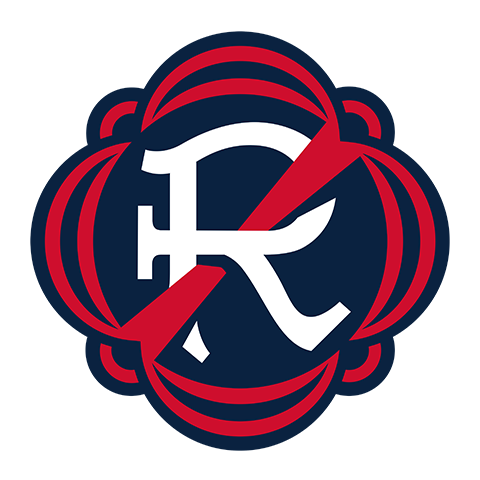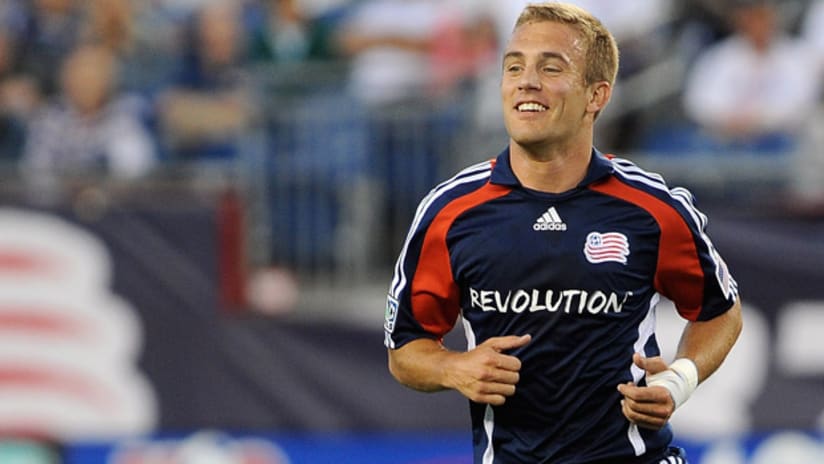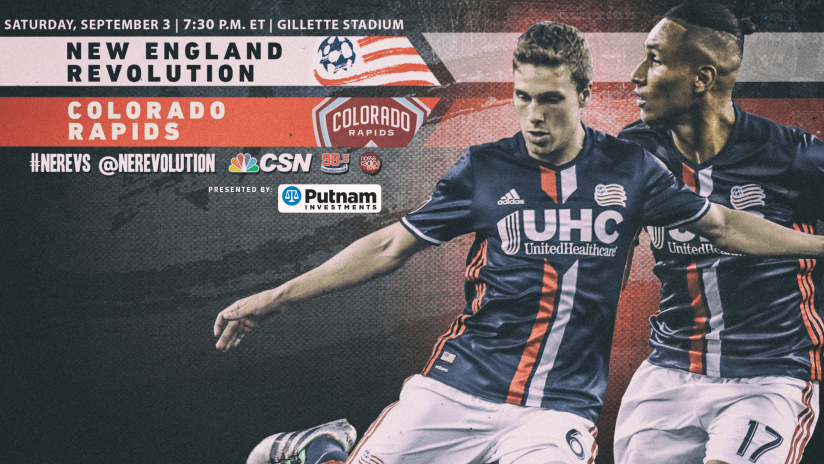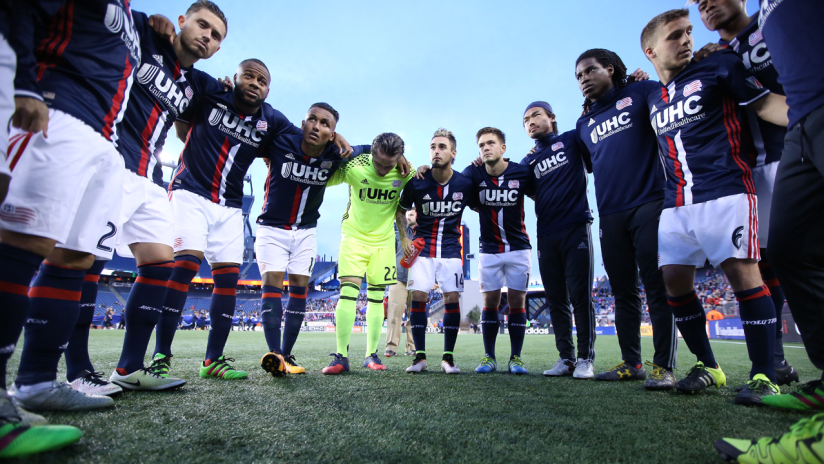FOXBOROUGH, Mass. – A legend returns to Gillette Stadium on Saturday night.
Taylor Twellman, whose 101 regular-season goals in a New England Revolution uniform are more than double anyone else in club history, will be honored at halftime of the Revs’ game against the Colorado Rapids. It’ll be Twellman’s first-ever Revolution game as a fan, primarily because his job as lead analyst for ESPN’s soccer coverage keeps him pretty busy on the weekends.
But his ESPN gig isn’t the only endeavor that’s occupied Twellman’s attention since he retired from the game in 2010. The 36-year-old former MLS standout also spends a significant amount of time working with his foundation, ThinkTaylor, started five years ago to raise concussion awareness.
Twellman has in many ways become the poster-boy for concussion awareness in sports, in large part because his own promising career was cut short due to the effects of multiple concussions, including the final devastating blow that came while scoring a goal against the LA Galaxy on August 30, 2008.
At the time Twellman was one of Major League Soccer’s brightest stars and a regular with the U.S. National Team, but limited knowledge of traumatic brain injuries meant Twellman rarely received the proper care, and he was often given differing opinions from different doctors.
Those experiences are why Twellman started ThinkTaylor.
“If you’re the all-time leading goal scorer for a Major League Soccer team … and you can’t get proper medical treatment, and you can’t get attention, and you can’t get straight answers, something needs to change,” Twellman said, noting that if professional athletes didn’t have access to the right information, young athletes certainly wouldn’t.
ThinkTaylor was born in 2011, and Twellman admits it was at the urging of friends and family. After spending years working through his own emotions – anger, angst and regret about how his own concussions were handled – Twellman was convinced to channel his energy into something positive.
And eventually, by helping others, Twellman helped himself.
“That’s what it ultimately was,” Twellman said. “Everyone looks at it and says, ‘you’re helping others,’ but in an indirect way, I was helping myself. Because one, I talked about it, and two, I took a negative situation and said I’m going to be proactive.
“That’s why I did it and I think that’s what needs to happen. We need more athletes to just be honest.”
ThinkTaylor’s mission is “to make sure kids, parents, coaches and everyone else who has eyes on youth sports is properly educated.” And in just the five years that ThinkTaylor has been in existence, Twellman says he’s seen a seismic shift in how concussions are viewed by the general public.
When Twellman suffered his career-ending concussion in 2008, the culture around head injuries was one of weakness; athletes were expected to hide them and fight through them.
That culture does still exist in many instances, but Twellman – who is active on social media and receives comments from both ends of the spectrum – has noticed that culture shifting to one of more acceptance and understanding that head injuries are, to put it mildly, serious business.
Changing that culture is one of the ultimate goals of ThinkTaylor.
“That’s what we’re doing at ThinkTaylor is the social, cultural awareness,” Twellman said. “Whatever word you want to use that’s around the word concussion or traumatic brain injury, it has to change.”
While ThinkTaylor’s focus is on education at the youth level, Twellman understands that professional sports have a role to play. And in that sense, there was no more impactful moment than when Christoph Kramer, a midfielder with the German National Team, suffered a head injury in the 2014 World Cup final.
Kramer was visibly disoriented after taking a blow to the head in the 17th minute of the Germans’ meeting with Argentina, and reportedly asked teammates where he was. But shockingly Kramer was allowed to return to the game and wasn’t removed until the 31st minute.
It was then that Twellman noticed a marked change in how fans and media reacted to a head injury.
“Everyone saw, at the height of the game, Christoph Kramer. There was absolutely no reason for him to be in that final,” Twellman said. “It opened everyone’s eyes.
“The simple fact that in 2014 in a World Cup final, there was a concussed athlete that should’ve never continued, changed that. So as much as I want to go on a high horse, it’s not about my high horse; it’s just pointing out instances where it happens. You don’t need a better instance than a World Cup final.”
Twellman, who still doesn’t work out and occasionally experiences the effects of concussions, says that he’s “doing way better” health-wise than he was four years ago. “It’s hard to complain,” said Twellman, who wants the focus to shift from preventing concussions to rehabilitating concussions.
It’s clear that Twellman’s mission won’t end until every youth athlete, coach and parent in the United States has proper concussion education. And that’s the path ThinkTaylor is headed down.
ThinkTaylor helped launch the first-ever Concussion Awareness Week in Massachusetts last year, reaching 20,000 young athletes. The second Concussion Awareness Week in Massachusetts will be from September 12-16, and this year, more than 86,000 athletes will be involved.
The growth here has been remarkable, but Twellman knows his influence is heavier in Massachusetts, where he played and lives. The objective now is to spread Concussion Awareness Week to other states, and Twellman is willing to help make that happen any way possible.
“I want every local organization and state association to take their own initiative,” Twellman said. “I don’t want this to be about me. I want to help organizations and states jumpstart their own (Concussion Awareness Weeks).
“I live here in Massachusetts, so it’s easy for me to be a part of it. But if Iowa calls me tomorrow, here’s the blueprint, here’s what we do. I will help in any social media aspect that I can, but I can’t be in all 50 states.
“However, I do think that’s where this is going. Because we went from 20,000 athletes to 86,000 in one year, and we’ve already had four states contact us. I think that’s where this is going.”
Twellman will be honored at Saturday night’s game against the Colorado Rapids, which is also ThinkTaylor Night at Gillette Stadium. Fans will be given orange signs – the color of healing and ThinkTaylor’s primary color – to hold up starting at 20:00, while other events and charitable activities around the game will all benefit ThinkTaylor and their mission of concussion awareness.










